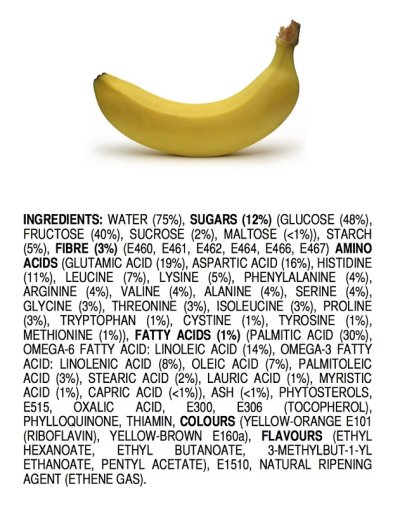ERD50
Give me a museum and I'll fill it. (Picasso) Give me a forum ...
Ah, the old "moderation in everything" argument (and everything will be fine). Maybe moderate consumption of toxic compunds is okay with you, but personally, I really don't want to consume any amount of this stuff. Maybe I won't be able to avoid it completely, but sticking mostly to whole/real foods certainly should help. Consuming a lot of processed foods anywhere is not a good idea, but at least Europe is making an effort to eliminate some of the worst food additives, and I applaud them for it.
Well, everything is toxic, it all depends on the dose.
Sure, I'm not saying play with fire, but we do not eat a lot of processed food, we make our meals mostly from scratch. So I'm not gonna get all worked up about 1,000 different things that might harm me if consume them in high amounts, when I only consume them occasionally. There are more important things to worry about. I'm actually more worried about the things organic farmers are allowed to use, simply because they are 'natural'.
"Natural" food contains all sorts of known toxins in far greater doses than this stuff of unknown toxicity. But you don't eat thousands of apple seeds either. Or drink 5 gallons of water a day. So yes, moderation does matter.
So an 80 kg / ~ 175 # man could die from ~ 7 liters ( ~ 2 gallons) of water. I bet I drink 1/3rd that amount many days. Dosage matters.Water is considered one of the least toxic chemical compounds, with an LD50 of over 90 ml/kg in rats.[3]
Heck a man can drink a couple 5% alc 12 oz beers a day, and some studies show that to be a positive. But drink 50 of those and you are probably dead. 50x and dead, not the thousands that are talked about with some of these additives in theses studies, that are still inconclusive.
-ERD50
Last edited:


 DH is a food scientist (Phd). You are 100% correct, ERD. A friend of ours worked for a flavors company in Chicago. She shared this tidbit with me, 1 cup of blueberry flavoring will kill an elephant.
DH is a food scientist (Phd). You are 100% correct, ERD. A friend of ours worked for a flavors company in Chicago. She shared this tidbit with me, 1 cup of blueberry flavoring will kill an elephant.